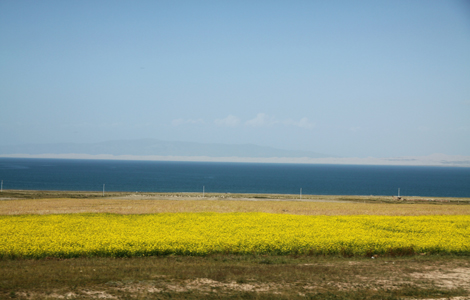Nations join together to stop terrorism
Updated: 2011-09-24 07:57
By Zhang Yuwei and Zhao Shengnan (China Daily)
|
|||||||||
NEW YORK / BEIJING - The Global Counterterrorism Forum, a new multilateral counterterrorism body that includes China, India, Russia, the United States and the European Union, was formally launched on Thursday in New York.
The forum, currently co-chaired by the US and Turkey, is a major initiative by US President Barack Obama and aims to build international support and willingness to deal with terrorism.
Forum members are expected to announce at least $60 million of support for counterterrorism efforts.
Foreign Minister Yang Jiechi, who is in New York City for the 66th session of the United Nations General Assembly, said the launch "speaks volumes of the international community's strong resolve to join forces in addressing new terrorist challenges".
"International terrorist forces are constantly changing their tactics and approaches. They are taking advantage of the Internet to spread terrorist and extremist ideologies to the fullest extent possible," he said.
Yang said terrorism is a common challenge facing all countries and stressed the "need to deepen international counterterrorism cooperation and achieve common security".
"We should step up counterterrorism cooperation and dialogue on the basis of mutual trust, mutual benefit, equality and coordination," Yang said.
He pressed forum members to promote global economic recovery and "ensure the development of all countries".
"Without development, nothing can be achieved. We must address these outstanding development issues, especially the issue of underdevelopment of developing countries," Yang said.
Dong Manyuan, a counterterrorism expert at the China Institute of International Studies, said that poverty is the root of terrorism and is often taken advantage of by national separatists and religious extremists.
He said the UN should make a greater effort to address poverty since developed economies have not completely realized the significance of lifting developing economies from poverty.
"The UN should coordinate worldwide cooperation to overcome poverty and provide effective programs and aid for developing economies based on its Millennium Development Goals," he said.
On the sidelines of the annual UN General Assembly debate at a Security Council meeting on conflict prevention on Thursday, Yang also urged UN members to devote more attention and resources to nip budding conflicts early.
Yang said that the UN needs to have a keener appreciation of the importance of preventive diplomacy and update its methods of conflict prevention as the world undergoes profound and complex changes.
"The UN should truly change its mindset of prioritizing treatment over prevention and the practice of prioritizing peacekeeping over mediation," he said, adding that the UN "should devote energy to early warnings, conflict prevention and peace mediation".
Since the mid-1990s, the UN has been attempting to put more focus on conflict prevention and peace construction. However, its potential has not been fully maximized due to limited human and financial recourses, said Zheng Qirong, a UN-studies expert at the China Foreign Affairs University.
"Conflicts usually have warnings before escalation, but actions by the UN need the authorization of the Security Council. However, contention between the members often constrains timely execution," he said.
Zheng said the UN can still serve as a platform for international communication, adding that "the agreements reached by the Security Council have actual force, while those made by the General Assembly often have restrictions".
Yang emphasized that regional and sub-regional organizations also have political, moral and geographic advantages in preventing and resolving local conflicts.
US Secretary of State Hillary Clinton, who launched the forum with Turkish Foreign Minister Ahmet Davutoglu, said terrorism is not a new phenomenon, but given advances in technology, communication and travel, it has become a global and continuous threat to everyone.
Clinton said there is a need to develop an international counterterrorism network that is "as nimble and adaptive as our adversaries, that can mobilize resources and expertise from across the globe, and that can not only meet today's challenges but prepare for tomorrow's".
The initial work of the forum will focus on criminal justice and rule of law, countering violent extremism and building counterterrorism capacity in the Sahel, the Horn of Africa and Southeast Asia.
Xinhua contributed to this story.
China Daily










